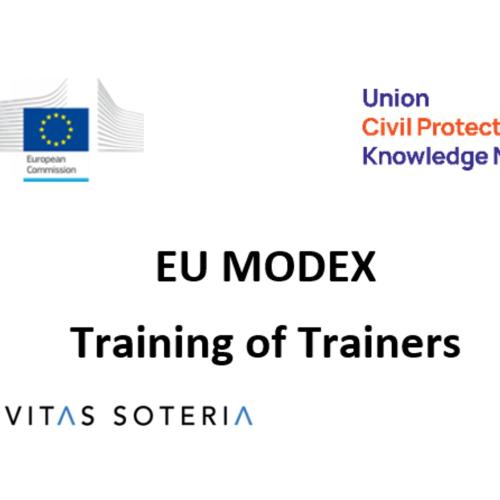
Overview
Status
Start
End
- Type
- Ad-hoc training courses, training of trainers, and thematic seminars & workshops
- EU contribution amount
- EUR 159 864.06
- Contact email
Description
Contract number: ECHO/SER/2024/A4/SC-008/923325
The overall aim of the training is to:
- Contribute to the implementation of a consistent and high-quality delivery of the coaching/training approach across all iterations of EU MODEX exercises by:
- Consolidating relevant knowledge, skill and approach competencies needed for EU MODEX coach/trainers assigned to coach and guide modules, other response capacities and experts throughout the EU MODEX;
- Ensuring an open and interactive environment; encourage peer-to-peer debate, discussion, consultation and feedback on applied learning across gender, linguistic and cultural environments;
- Experiencing learning through role play and table top exercises in order to demonstrate personal competencies using an integrated coaching and feedback framework of increasing complexity and intensity.
- Refresh the knowledge of the coach/trainers that participated in the ToT in the past.
Upon completion of the 120-minute online module, the participants would be able to:
- Understand the EU MODEX concept and methodology
- Explain the differences between EU MODEX Lots, the different exercise styles of those Lots and their approaches of coaching / training
- Understand the adult learning theory and styles.
- Understand the Blooms Taxonomy and be able to explain differences between its six levels
- Describe EU MODEX terminology (inject, event, MIL, MEL, outcome, output, main and specific objectives, etc.)
- Understand the four stages of the GROW model
- Understand the different types of feedback that is given during an EU MODEX
- Describe different technologies used by all EU MODEX Lots for steering the exercise
- Understand the Duty of Care for Consortiums
- Define Key actions to be taken in the event of an Accident
- Recognise the qualifying factor of a Near Miss
Upon completion of the in person 4-days course, the participants will be able to:
- Understand the roles and functions of EU MODEX coach/trainer.
- Describe their role, their tasks, their rights, and obligations within the EU MODEX
- Describe the different possible cultures and cultural mindsets within the EU MODEX exercise and to be able to differ them and to better handle cultural issues or misunderstandings between trainers and participants.
- Identify stress symptoms at their teams and for themselves, cope with stress during the EU MODEX exercise.
- Describe how adult learning theory can be applied in EU MODEX.
- Understand the difference between main and specific objectives, explain an EU MODEX aim, how exercise injects are used during an EU MODEX and what is the difference between inject/events; outputs/outcomes, etc.
- Apply the Blooms Taxonomy in the different phases of an Exercise.
- Define measurable learning objectives when designing events and injects.
- Understand the contractual expectations from the coach/trainer.
- Understand the Scenario, and the planned Events and Injects associated with the EU MODEX.
- Define Exercise Learning Objectives and Module Specific Learning Objectives.
- Understand the coach/trainer function in relation to EXCON (exercise control), CEC (chief exercise controller) and the main coach/trainer (MCT).
- Understand mental and physical personal preparation.
- Describe the key elements of coach/trainer observation methodology, analyse how coach/trainer observes team performance or individual expert’s performance during an EU MODEX and understand the possible outcomes from direct observations.
- Upgrade individual coach/training skills using the GROW ME model as a mean for ensuring consistent delivery of all EU MODEX activities, including the facilitation of critical feedback sessions.
- Understand the importance of accurate recording of observations during EU MODEX, understand how observations are used by the CEC and EXCON during the conduct phase and list pros and cons of different recording tools.
- Understand the importance of delivering feedback to improve performance of EU MODEX participants and describe different types of feedback with their practical use.
- Identify personal strengths and particular issues which coach/trainer need to address to further develop and improve.
- Understand the role of coach/trainer when no play situations, near miss and real incident occur during EU MODEX.
- Understand how to identify poor performance and behaviours during EU MODEX.
- Describe strategies for dealing with conflict when it happens.
- Understand the importance and content of the coach/trainer code of conduct during EU MODEX.
- Describe how to maintain coach/trainer competence in EU MODEX.
- Define how the end of exercise feedback report should be prepared and delivered.
- Understand the function of a Module Focal Point.
Context
The Civitas Soteria Consortium is currently responsible for the implementation of this Framework contract, being led by ICF and integrating organisations with diverse experience in the field of Civil Protection, research, disaster medicine, humanitarian health and risk reduction, training and mutual learning activities in the Sector of Civil Protection. Organisations part of the consortium are, in addition to ICF: MDF, Scuola Superiore Sant’Anna, Up Learning, CI3R, and CRIMEDIM.
The consortium is also supported the by Civil Protection Agencies of Bulgaria, Finland, Germany, Italy, Portugal, Romania and Spain. This specific request for services will be led by MDF with the support of ICF.
There are two activities in the project:
ToT cycle 4: organized in EDE, NL, form 2 till 6 December 2024
ToT cycle 5: organized in EDED, NL from 31.03-4.04.2025
Project content
News
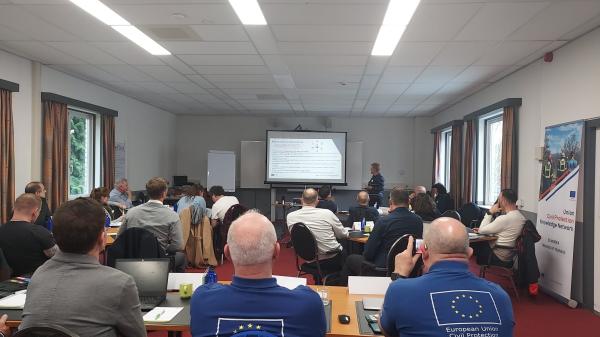
1st Edition of the EU MODEX ToT in the Netherlands from 4-8 December 2024
Stories
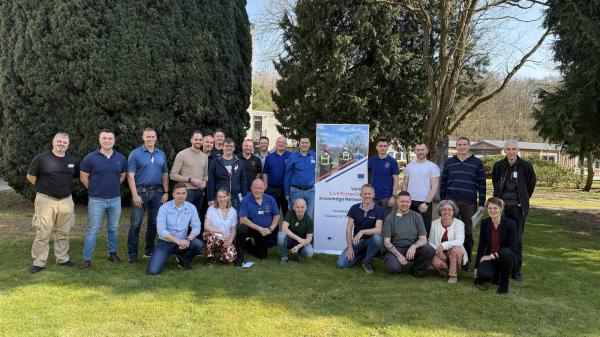
5th edition of the EU MODEX ToT in the Netherlands
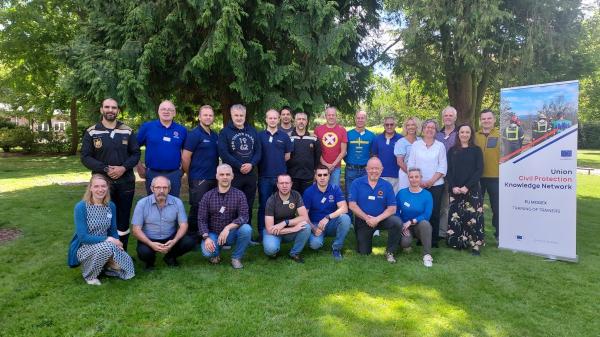
3rd and Final edition of the EU MODEX ToT in the Netherlands
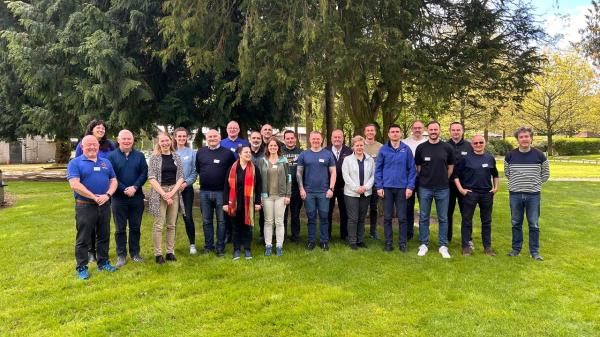
2nd Edition of the EU MODEX ToT in the Netherlands from 15-19 April 2024
Partner organisations
Sectors